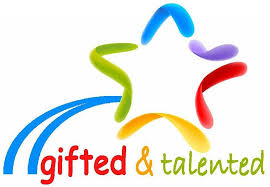Introduction
In today’s ever-evolving world, the importance of recognizing and nurturing gifted and talented individuals cannot be understated. These exceptional individuals possess unique abilities that, when adequately honed, can contribute significantly to various fields and ultimately propel society forward. This article delves into understanding the concept of giftedness and talent, explores the challenges these individuals face, and highlights strategies for cultivating their potential.
Understanding Giftedness and Talent
Giftedness encompasses an innate potential for exceptional achievement in one or more domains based on a person’s cognitive functioning. It includes different subsets such as intellectual giftedness, creative giftedness, and artistic giftedness.
Talent, on the other hand, refers to an individual’s exceptional capacities in specific domains such as music, sports, or arts. It denotes an innate aptitude that can be developed through practice.
While both terms might seem synonymous, they cater to different spheres of human potential. Collectively, they help create a vital context that encompasses people who have extraordinary capabilities that set them apart from their peers.
Challenges Faced by Gifted and Talented Individuals
These uniquely capable people often face numerous hurdles throughout their lives due to misperceptions and inadequate support systems. Some common challenges are:
1. Inaccurate Identification: Lack of adequate testing techniques or overlooking early signs can lead to misidentification of gifted or talented children. Consequently, they may not receive the appropriate resources to foster their abilities.
2. Underachievement: Due to unchallenging curricula or insufficient stimulation in traditional educational settings, gifted or talented individuals might lose motivation in their pursuits or resort to underachievement.
3. Social Isolation: The disparity between cognitive capacities can make it difficult for these individuals to connect with their age peers on both emotional and intellectual levels.
4. Perfectionism: Due to the high expectations surrounding their abilities, gifted or talented people might develop unhealthy perfectionism, leading to an aversion to taking risks or facing failure.
Strategies for Nurturing Gifted and Talented Individuals
1. Early Identification: By accurately identifying extraordinary individuals through psychological testing, parent and teacher observations or participation in specialized programs, these children can receive suitable resources and guidance.
2. Differentiated Curriculum: Providing individualized learning opportunities that cater to their unique needs can help support and engage them intellectually. It is crucial to provide challenging tasks, encourage critical thinking, and foster a love for learning.
3. Social Support: Encouraging participation in social activities with like-minded peers, such as clubs or mentorship programs, can foster emotional well-being and promote a sense of belonging.
4. Emotional Guidance: It is essential to address the emotional needs of gifted and talented individuals by acknowledging their struggles, validating their feelings, and providing necessary support.
5. Parental Involvement: Parents should remain engaged in their children’s education and collaborate actively with educators to ensure that their child receives the resources they need to flourish.
Conclusion
Gifted and talented individuals stand as beacons of excellence within various domains due to their incredible potential. Recognizing their unique abilities at an early age while providing ample opportunities for growth will help unleash their full potential. As a society, it is our responsibility to ensure that we invest in these extraordinary minds so that they may contribute significantly towards improving our world in the best way possible.





